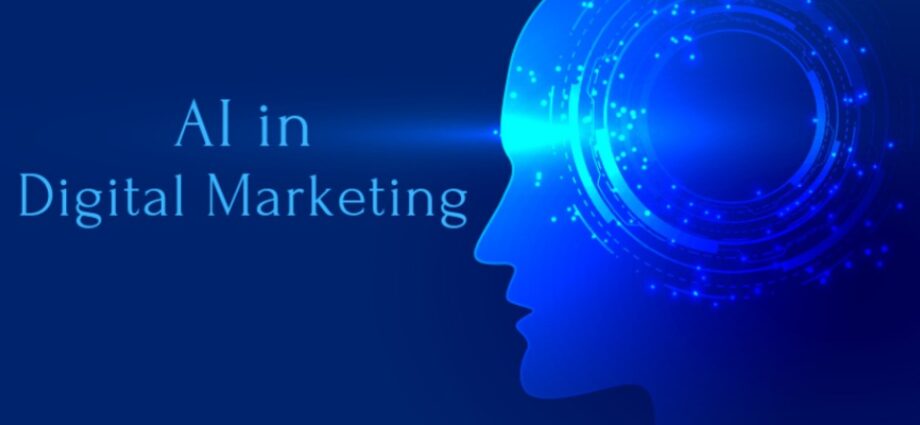Artificial Intelligence (AI) has become one of the most exciting and rapidly evolving technologies in recent years, and it has found its way into many industries, including digital marketing. AI has the potential to revolutionize the way businesses market their products and services and interact with their customers. In this guest post, we will discuss the current state of AI in digital marketing, its benefits and limitations, and some of the most common applications.
AI technology is becoming increasingly sophisticated and is allowing marketers to analyze large amounts of data to understand customer behavior and preferences. This, in turn, allows marketers to target their messages more effectively, and personalize the customer experience. AI algorithms can analyze data from various sources, including social media, search engines, and e-commerce platforms, to understand customer behavior and preferences. This data is then used to create more targeted and effective marketing campaigns that are designed to reach the right customers at the right time.
One of the biggest benefits of AI in digital marketing is that it can automate many of the tasks that were once performed manually. For example, AI can automate the process of sending emails, scheduling social media posts, and analyzing data. This not only saves time, but it also ensures that campaigns are carried out more efficiently and effectively. Additionally, AI algorithms can quickly analyze large amounts of data to identify trends and patterns, which can help marketers make more informed decisions about their marketing strategies.
However, AI in digital marketing is not without its limitations. One of the biggest challenges is that AI algorithms rely on data to make decisions. If the data is not accurate or up-to-date, the algorithms may produce incorrect results. Another challenge is that AI algorithms can sometimes struggle to understand context and can produce results that are not relevant to the target audience. It’s important for marketers to be aware of these limitations and to constantly monitor the performance of their AI-powered campaigns.
Here are 15 common applications of Artificial Intelligence (AI) in digital marketing, with details:
- Customer Segmentation: AI algorithms can analyze customer data to understand their behavior and preferences, which can be used to segment customers into groups with similar characteristics. This allows marketers to create targeted campaigns that are designed to reach specific customer segments.
- Personalization: AI algorithms can personalize the customer experience by recommending products or content that is relevant to the customer’s interests. For example, e-commerce platforms can use AI algorithms to recommend products based on the customer’s previous purchases.
- Predictive Analytics: AI algorithms can analyze data and make predictions about customer behavior. For example, AI algorithms can be used to predict which customers are most likely to make a purchase in the near future, allowing marketers to target their messages more effectively.
- Chatbots: AI-powered chatbots can be used to interact with customers in real-time, answering questions and providing information. Chatbots can be integrated into websites and social media platforms, and can help businesses to provide 24/7 customer support.
- Email Marketing: AI algorithms can automate the process of sending emails, personalizing the messages based on customer behavior and preferences.
- Social Media Marketing: AI algorithms can help in Social Media Marketing to schedule social media posts, analyze the performance of previous campaigns, and recommend the best times to post.
- Content Marketing: AI algorithms can help identify the topics and formats that are most likely to engage the target audience, and can also be used to automate the process of creating content.
- Paid Advertising: AI algorithms can help optimize paid advertising campaigns by identifying the most effective keywords and targeting the right audience.
- Voice Search Optimization: AI algorithms can be used to understand the way customers are using voice search, and can help optimize websites and content for voice search.
- Website Optimization: AI algorithms can be used to analyze website data and make recommendations for improving the user experience, including recommendations for design changes and optimizations for search engines.
- Customer Service: AI algorithms can be used to automate the process of responding to customer inquiries, freeing up time for human customer service representatives to handle more complex issues.
- Conversion Rate Optimization: AI algorithms can be used to analyze customer behavior and make recommendations for improving the conversion rate, such as by recommending changes to website design or messaging.
- Predictive Maintenance: AI algorithms can be used to analyze data from connected devices to predict when maintenance will be required, allowing businesses to schedule maintenance in advance.
- Fraud Detection: AI algorithms can be used to detect patterns in financial data that are indicative of fraud, allowing businesses to identify and prevent fraudulent activities.
- Inventory Management: AI algorithms can be used to optimize inventory management by predicting customer demand and recommending the best times to reorder products.
These are just a few examples of the many ways that AI is being used in digital marketing. As the technology continues to evolve, it is likely that we will see even more innovative applications in the future.
In conclusion, AI is changing the way businesses market their products and services, and is proving to be a valuable tool for digital marketers. AI has the potential to automate many tasks, analyze large amounts of data to understand customer behavior and preferences, and personalize the customer experience. While there are some limitations, the benefits of AI in digital marketing are clear, and businesses that embrace this technology will be well positioned to succeed in the future.

